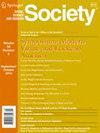The Role of Social Capital of Islamic Students (Santri) in Facing the Impacts of Globalization: A Case Study at Buntet Islamic Boarding School
IF 1.4
4区 社会学
Q2 SOCIAL SCIENCES, INTERDISCIPLINARY
引用次数: 0
Abstract
Islamic boarding schools in Indonesia face major challenges due to the Industrial Revolution 4.0 and globalization, which include adaptation to digital technology, expansion of social networks, and integration of Islamic boarding school values in technology-based curricula. This research focuses on the role of social capital in maintaining the relevance of Islamic boarding schools, with Buntet Islamic Boarding School as a case study. Using a qualitative approach with in-depth interviews and participant observation, data was analyzed to identify the daily application of social capital. Findings show that strong social networks, mutual trust, internalized social norms, and cooperation play key roles in the transformation of Islamic boarding schools. The uniqueness of the Buntet Islamic Boarding School can be seen in its ability to build a strong alumni network, facilitate access to new resources, and maintain the identity and values of the Islamic boarding school through a technology-based curriculum. The results of this research have practical implications in the context of education in Indonesia, guiding Islamic boarding schools and other traditional institutions to integrate social capital in their adaptation strategies to face the impacts of the Industrial Revolution 4.0 and globalization, maintain sustainability, and increase competitiveness.伊斯兰学生(Santri)的社会资本在面对全球化影响时的作用:邦特伊斯兰寄宿学校案例研究
印度尼西亚的伊斯兰寄宿学校面临着工业革命 4.0 和全球化带来的重大挑战,其中包括适应数字技术、扩大社交网络以及将伊斯兰寄宿学校的价值观融入以技术为基础的课程中。本研究以 Buntet 伊斯兰寄宿学校为案例,重点关注社会资本在保持伊斯兰寄宿学校相关性方面的作用。通过深入访谈和参与观察的定性方法,对数据进行了分析,以确定社会资本的日常应用。研究结果表明,强大的社会网络、相互信任、内化的社会规范以及合作在伊斯兰寄宿学校的转型中发挥了关键作用。邦特伊斯兰寄宿学校的独特性体现在它有能力建立一个强大的校友网络,促进新资源的获取,并通过基于技术的课程保持伊斯兰寄宿学校的身份和价值观。本研究的结果对印尼教育具有实际意义,可指导伊斯兰寄宿学校和其他传统机构将社会资本纳入其适应战略,以面对工业革命 4.0 和全球化的冲击,保持可持续性并提高竞争力。
本文章由计算机程序翻译,如有差异,请以英文原文为准。
求助全文
约1分钟内获得全文
求助全文
来源期刊

Society
Multiple-
CiteScore
1.30
自引率
11.10%
发文量
132
审稿时长
12 weeks
期刊介绍:
Founded in 1962, Society enjoys a wide reputation as a journal that publishes the latest scholarship on the central questions of contemporary society. It produces six issues a year offering new ideas and quality research in the social sciences and humanities in a clear, accessible style.
Society sees itself as occupying the vital center in intellectual and political debate. Put negatively, this means the journal is opposed to all forms of dogmatism, absolutism, ideological uniformity, and facile relativism. More positively, it seeks to champion genuine diversity of opinion and a recognition of the complexity of the world''s issues.
Society includes full-length research articles, commentaries, discussion pieces, and book reviews which critically examine work conducted in the social sciences as well as the humanities. The journal is of interest to scholars and researchers who work in these broadly-based fields of enquiry and those who conduct research in neighboring intellectual domains. Society is also of interest to non-specialists who are keen to understand the latest developments in such subjects as sociology, history, political science, social anthropology, philosophy, economics, and psychology.
The journal’s interdisciplinary approach is reflected in the variety of esteemed thinkers who have contributed to Society since its inception. Contributors have included Simone de Beauvoir, Robert K Merton, James Q. Wilson, Margaret Mead, Abraham Maslow, Richard Hoggart, William Julius Wilson, Arlie Hochschild, Alvin Gouldner, Orlando Patterson, Katherine S. Newman, Patrick Moynihan, Claude Levi-Strauss, Hans Morgenthau, David Riesman, Amitai Etzioni and many other eminent thought leaders.
The success of the journal rests on attracting authors who combine originality of thought and lucidity of expression. In that spirit, Society is keen to publish both established and new authors who have something significant to say about the important issues of our time.
 求助内容:
求助内容: 应助结果提醒方式:
应助结果提醒方式:


